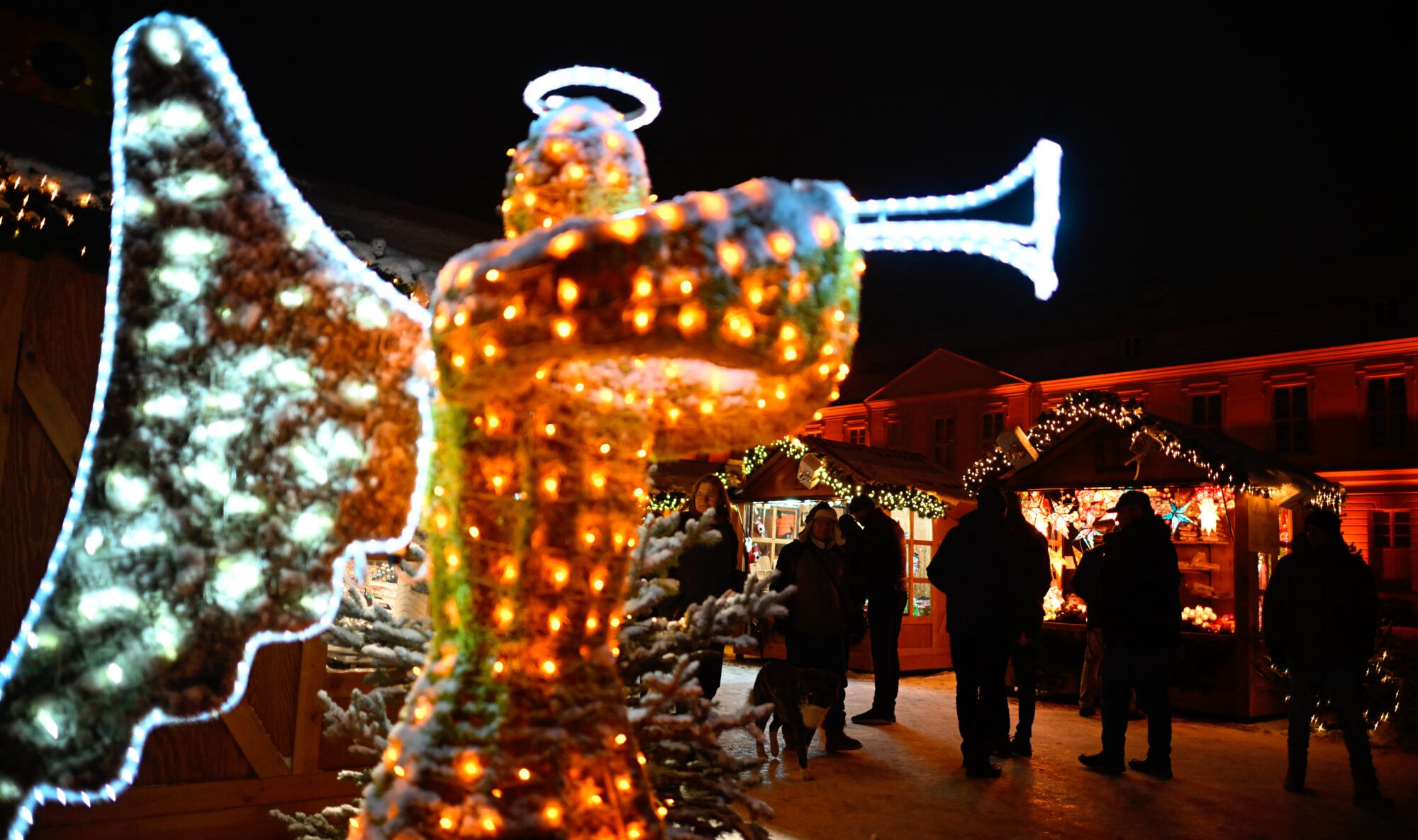
Visitors walk along stalls at the Christmas market near Charlottenburg Palace in Berlin, Germany on November 29th, 2023.
Photo: TOBIAS SCHWARZ / AFP
German police have made a string of arrests of Islamist terrorists who were planning attacks on the country’s famed Christmas markets, evoking memories of the December 19, 2016 attack in Berlin, where a truck driver plowed into a crowd of people, causing 12 deaths.
Concerned that the ongoing Israel-Hamas conflict in the Gaza Strip might prompt jihadist attacks, German authorities have been on high alert.
Their concern, as it turns out, is valid.
On Tuesday, November 21st, German police detained a 20-year-old Iraqi man known to be a jihadist who was planning an attack on the Christmas market in Hanover, Hannoversche Allgemeine Zeitung reported, after having it confirmed by the Lower Saxony State Criminal Police Office last Thursday.
“The police had obtained information that the man had planned a serious act of violence,” said a spokesman. The 20-year-old remains in preventive custody.
Lower Saxony’s interior minister, Daniela Behrens, confirmed the news.
She said that there were no concrete indications of an attack yet, but that based on information about the suspect, it was decided to take him into preventive custody. She called on the broader German population not to be afraid to visit a Christmas market.
The man, who lives in Saxony-Anhalt, is said to have told the terrorist Islamic State organization of his readiness to carry out an attack.
The news comes on the heels of an earlier report published by the Frankfurter Allgemeine Zeitung that same day.
According to FAZ, two teenagers (one from North Rhine-Westphalia and the other from Brandenburg) were arrested after making concrete plans to carry out a jihadist attack.
According to prosecutors, a 15-year-old German boy of Afghan descent and a 16-year-old Russian living in Germany were initially considering a December attack on a Christmas market or synagogue in the city of Cologne, but settled on the city of Leverkusen, in North Rhine-Westphalia.
According to senior public prosecutor Holger Heming, the duo’s plans had reached an advanced stage. They were intending to commit their act “by means of a fuel explosion of a small truck at the beginning of December at a Christmas market in Leverkusen,” he said, adding that the vehicle and fuel had already been procured. Their “very concrete conceptual model,” he continued, was based on the goals and methods of the Islamic State (IS). The two, he noted, afterwards intended to travel to Afghanistan to join IS offshoot Islamic State Khorasan (IS-K), which, as previously reported by The European Conservative, had already been identified by Western intelligence agencies as potentially inspiring new attacks on European soil.
In what is now a common occurrence, the Federal Office for the Protection of the Constitution (BfV), Germany’s domestic security agency, was alerted to the two suspected jihadists’ existence by an outside, as yet unidentified, Western intelligence service.
That service found the two suspects in a Telegram group exclusively composed of young jihadists who wanted to wage a ‘holy war’ and carry out attacks.
It was only on Wednesday that Thomas Haldenwang, the BfV’s president, warned that the danger of jihadist attacks in Germany was “real” and “higher than it has been in a long time.”
That same day, the North Rhine-Westphalian interior minister, Herbert Reul, said he was very concerned about the suspect’s young age, as he pointed to the threat that “the digital space” poses to young people, who spend a lot of time there. “They network with like-minded people in chat groups, social networks, and messenger services and exchange information there, and that is obviously sometimes dangerous,” he said.
German security authorities, Reul went on, “have to keep their eyes open,” but assured the German public that they are “already on the alert, well networked, and able to exchange information quickly.”
